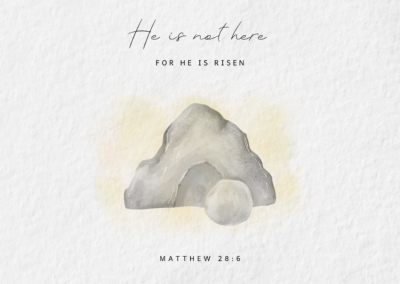
The Pangolin Effect: Covid-19 and Human Sin
by Silvia Purdie, 22nd April 2020
[responsivevoice_button voice=”US English Female”]
April 22ndis Earth Day, and it behoves us to think closely about our effect on the earth. The trail of this present pandemic tragedy is a case in point. Once upon a time, about 4 months ago,[i]in a market in Wuhan, a man set up his stall in the early morning, as he always did. He was careful to store some extra special cages out of public sight where he could keep an eye on them. He was delighted that a shipment had arrived overnight; in the cages were several pangolins. They’d had a long journey from where they had been caught in the hills of Yunnan province, down by the Burmese border, nearly 2,000km away.[ii]Some of them looked a bit the worse for wear, maybe a bit sick, but they were precious cargo. The stall owner had his buyers, and each of these curled up scaly creatures would fetch him a few hundred dollars. He knew this was illegal, but the authorities turned a blind eye, and even if he was charged the fine was only the profit from a couple of them. The pangolins were sold, their meat served a prized delicacy and their scales boiled off, dried and ground.[iii]When people in Wuham started to get sick, it never crossed the mind of the stall owner that the new virus came from these animals, there in his stall.
Every spiritual tradition tells stories of the origins of things. This is, as far as the scientists can tell so far, the origin of Covid-19, which has become a global pandemic threatening millions of lives and every economy (in this story the more distant origin was bats, and of course there are other possibilities). The point of the story is not to lay the blame on one stall holder, or even on the poachers catching pangolin, the truckers who transport them, the chefs who cook them or the medicine men who grind them into pills. This was a disaster waiting to happen; if not in Wuhan then in any number of other wildlife sales anywhere in the world, including the USA. If not pangolin, then any number of other animals cruelly bred or captured for human greed.[iv]
Peter Daszak from the EcoHealth Alliance is one of many scientists who have been warning for years of high risk of global viral outbreaks. “Pandemics usually begin as viruses in animals that jump to people when we make contact with them. These spillovers are increasing exponentially as our ecological footprint brings us closer to wildlife in remote areas and the wildlife trade brings these animals into urban centers. Unprecedented road-building, deforestation, land clearing and agricultural development, as well as globalized travel and trade, make us supremely susceptible to pathogens like coronaviruses.”[v]The trade in wildlife is wrong on so many levels, and is clearly to blame for releasing Covid-19, but there are plenty of other factors at work, many of which involve damage to the natural world which sets us up for uncalculable damage to the human world.
The Christian spiritual tradition tells a story of origins in Genesis. It speaks of human sentience and decision-making, and of a rupture in our consciousness. At the birth of our species we became able all of a sudden to making decisions which had ramifications for good and for evil. We could listen to the Word of God, or we could listen to another voice. Although this story is symbolic it resonates through the ages, and speaks to the human condition.
Human sin has dragged the humble pangolin into the curse of Genesis, the conflict between creature and humanity described in Genesis 3. Pangolins are being hunted to extinction and in return they have infected us.
Environment advisor to the World Bank, Daniel Mia-Salamai coined the phrase ‘The Pangolin Effect’ to describe “the unavoidable, disproportionate ending of an avoidable, relatively modest beginning: a virus, present on a natural host in the wild, causes a pandemic by taking advantage of a large chain of interconnected events able to spread it globally.”[vi]This is an excellent summary of Christian theology of sin; seemingly trivial missing of the mark in humans can have catastrophic and far flung and disproportionate effects.
Which begs the question, what do we mean by ‘sin’? The church has often seen it as personal, about me and God and me and other people. But when we focus on broken relationships and moral principles we miss half the picture, for sin in the Bible includes human relationship with the natural world. When we dishonour creation we dishonour God. When people sin, it is often creation that pays the price. The prophet Isaiah expresses this powerfully in chapter 24; “The earth lies polluted under its inhabitants; for they have transgressed laws, violated the statutes, broken the everlasting covenant.” (Isaiah 24:5, NRSV). Earth Day in particular, invites us to make these connections.
It is good and important for us to call out the evils of the world, and certainly the live trade in wild animals needs to be stopped for the good of everyone. However, Christian ethics is the call to honest self-critique; Jesus consistently called for personal responsibility and refused to condone judgement on others.[vii]We in New Zealand are proud of our ‘clean green’ image. We love our natural outdoors, and you can’t have a pangolin slaughtered while you wait at the Otara market. However we have the highest percentage of endangered species of any country in the world.[viii]There’s plenty for us to do in our own backyard to protect God’s creatures. We too have stumbled clumsily around in delicate eco-habitats.
It would be nice to bring this story to a happy ending, but there is little good news for the pangolin. China has banned trade in all wild animals, but last week[ix]the wet market in Wuhan re-opened and exotic live animals are back for sale. It’s a case of ‘evil begets evil’,[x]an ever intensifying cycle of decreasing supply leading to increasing demand leading to extinction. The fewer pangolins there are the more valuable they are. The person who buys the very last one will pay a very high price indeed. As we remember Earth Day today, perhaps we can consider the parable of the pangolin. Sometimes the effects of sin escape our control. The earth requires us to be intentional about healing the earth as a form of repentance. We have all been a part of the pangolin effect and we can all take part in its healing.
References
Daszak, Peter. “We Knew Disease X Was Coming. It’s Here Now.” New York Times, 27 February 2020, accessed 5 April 2020.
<https://www.nytimes.com/2020/02/27/opinion/coronavirus-pandemics.html?action=click&module=RelatedLinks&pgtype=Article>
Joy, Mike & Sylvie McLean. “NZ has world’s highest proportion of species at risk.” Victoria University of Wellingtonwebsite, accessed 5 April 2020.
<https://www.wgtn.ac.nz/news/2019/05/nz-has-worlds-highest-proportion-of-species-at-risk>
Mira-Salamai, Daniel. “Coronavirus and the ‘Pangolin Effect’: Increased exposure to wildlife poses health, biosafety and global security risks.” 17 March 2020, The World Bankwebsite, accessed 4 April 2020.
<https://blogs.worldbank.org/voices/coronavirus-and-pangolin-effect-increased-exposure-wildlife-poses-health-biosafety-and>
Ministry for the Environment, NZ Govt, “Environment Aotearoa 2019 Summary.” accessed 5 April 2020. <https://www.mfe.govt.nz/environment-aotearoa-2019-summary>
National Geographicanimal reference. “Pangolins.” accessed 5 April 2020. <https://www.nationalgeographic.com/animals/mammals/group/pangolins>
[i]Probably early December 2019.
[ii]The Covid-19 coronavirus originated in horseshoe bats living in this region.
[iii]“Pangolin scales are made of keratin, the same material that makes up fingernails, hair, and horn. Pangolin scales, like rhino horn, have no proven medicinal value, yet they are used in traditional Chinese medicine to help with ailments ranging from lactation difficulties to arthritis. The scales typically dried and ground up into powder, which may be turned into a pill.” “Pangolins.” National Geographicanimal reference, accessed 5 April 2020. <https://www.nationalgeographic.com/animals/mammals/group/pangolins>
[iv]“As Covid-19 strikes today and a spate of other pathogens are ready to emerge in the future, we continue to butt up against nature. Scientists estimate that there are 1.67 million unknown viruses of the type that have previously emerged in people.” Peter Daszak, “We Knew Disease X Was Coming. It’s Here Now.” New York Times, 27 February 2020, accessed 5 April 2020. <https://www.nytimes.com/2020/02/27/opinion/coronavirus-pandemics.html?action=click&module=RelatedLinks&pgtype=Article>
[v]Daszak, “We Knew Disease X Was Coming. It’s Here Now.”
[vi]Daniel Mira-Salamai, “Coronavirus and the ‘Pangolin Effect’: Increased exposure to wildlife poses health, biosafety and global security risks.” 17 March 2020, The World Bankwebsite, accessed 4 April 2020.
<https://blogs.worldbank.org/voices/coronavirus-and-pangolin-effect-increased-exposure-wildlife-poses-health-biosafety-and>
[vii]Jesus’ ethic is expressed clearly in his response to the stoning of the woman caught in adultery; “Let anyone among you who is without sin be the first to throw a stone at her.” (John 8:7, NRSV).
[viii]Mike Joy and Sylvie McLean, “NZ has world’s highest proportion of species at risk.” Victoria University of Wellingtonwebsite, accessed 5 April 2020.
<https://www.wgtn.ac.nz/news/2019/05/nz-has-worlds-highest-proportion-of-species-at-risk>
“Almost 4,000 of our native species are currently threatened with or at risk of extinction.” Ministry for the Environment, NZ Govt, “Environment Aotearoa 2019 Summary.” accessed 5 April 2020. <https://www.mfe.govt.nz/environment-aotearoa-2019-summary>
[ix]Wuhan Seafood Market reoppened on 30 March 2020 after being shut down for three months.
[x]Ephesians 6:7-8. “Don’t be misled—you cannot mock the justice of God. You will always harvest what you plant. Those who live only to satisfy their own sinful nature will harvest decay and death from that sinful nature.”



